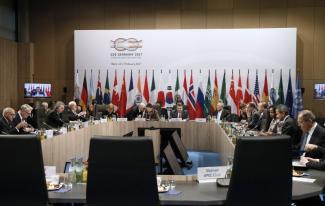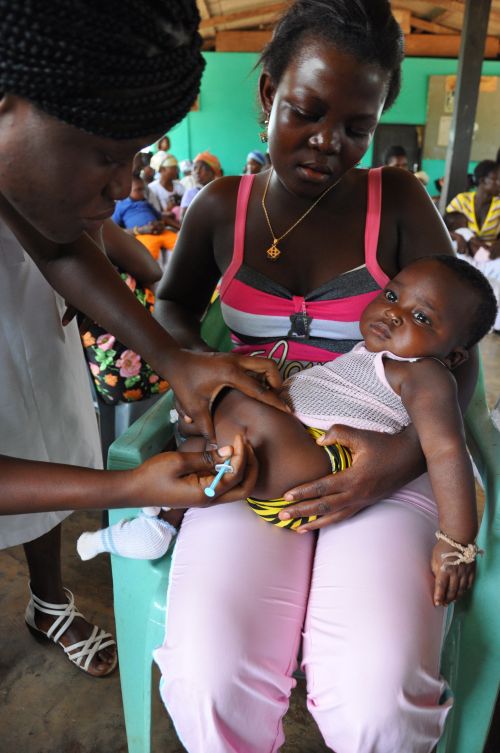G20
Sustainably overstrained?

Let’s be clear about one thing from the start: the G20 is a huge and vital communication and consensus machine. It is safe to say that 10,000 representatives from politics, society, business, science, academia and the media are involved in its work worldwide. Part of the charm of the G20 is that it achieves dialogue and cooperation between countries with different models and levels of development without relying on outdated bloc affiliations. A G20 president that sets a good narrative can be effective even if no joint resolutions are reached.
Nevertheless, the G20 becomes a paper tiger if members’ vetoes block anything but the lowest common denominator and if the domestic implementation of collective commitments is not ensured over successive presidencies. The problem is compounded when a large number of countries experience change at the top or political upheaval. Nearly half of the heads of state and government invited to Hamburg were not in office when the 2030 Agenda was approved in 2015. What is more, over a third of G20 countries face major political crises.
But the G20 must not allow individual members or collective amnesia to prevent common challenges being tackled. Who speaks today of the G20 resolution adopted in Brisbane in 2014 to narrow the gap between male and female employment rates by 25 % by 2025? What is actually being done to implement the Antalya commitment (2015) to reduce the number of young people at greatest risk of being permanently excluded from the labour market by 15 % by 2025? And what has become of the commitment made in 2016 in Hangzhou to take effective action on climate change?
Maybe it is time for a variable-speed G20. Some things work only if everyone is on board – like banking regulation. But there are also areas – such as inequality and inclusion, climate and oceans – where subgroups can make a difference. For example, a joint learning process could be set up in the G20 for the transformation of rustbelts. The G20 as a group could recognise such initiatives and provide a framework for them.
The 2030 Agenda lends itself a useful vehicle for such variable implementation geometry. At present, however, advances in new directions are impeded by conceptual and institutional path dependencies. Too many governments and workstreams see the 2030 Agenda as a programme for poorer countries and dismiss its universality. The result is a reductive understanding of collective action that refers only to third parties, not to the G20 countries themselves.
Institutional structures reinforce this approach. The mandate of the G20 Development Working Group (DWG) has been extended to include strengthening and coordinating the G20’s role in promoting globally sustainable development. But in its composition, the DWG is still defined by traditional development-cooperation agencies and struggles to adapt to its new role. At the same time, line-ministry directorates balk at DWG coordination, often avoid implementing the 2030 Agenda in G20 countries themselves and outsource it into cooperation with poorer countries.
If Hamburg cannot untie this Gordian knot, the prospects look bleak for the G20’s role in implementing the 2030 Agenda. The universality of that agenda needs to be reinforced and collective G20 commitments must be implemented domestically in G20 countries. The DWG needs to evolve to play its bigger new role and promote coherence across the G20’s workstreams. The G20 needs to find ways to drive forward the implementation of the Agenda even if all members are not always on board from the outset.
Adolf Kloke-Lesch is Executive Director of the Sustainable Development Solutions Network (SDSN Germany), a network of knowledge centres.
kloke-lesch@sdsngermany.de
Link
Sustainable Development Solutions Network (SDSN Germany):
http://www.sdsngermany.de








